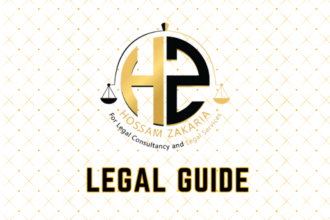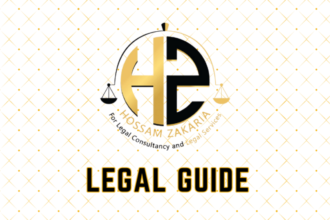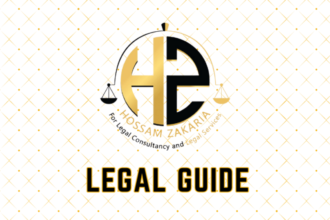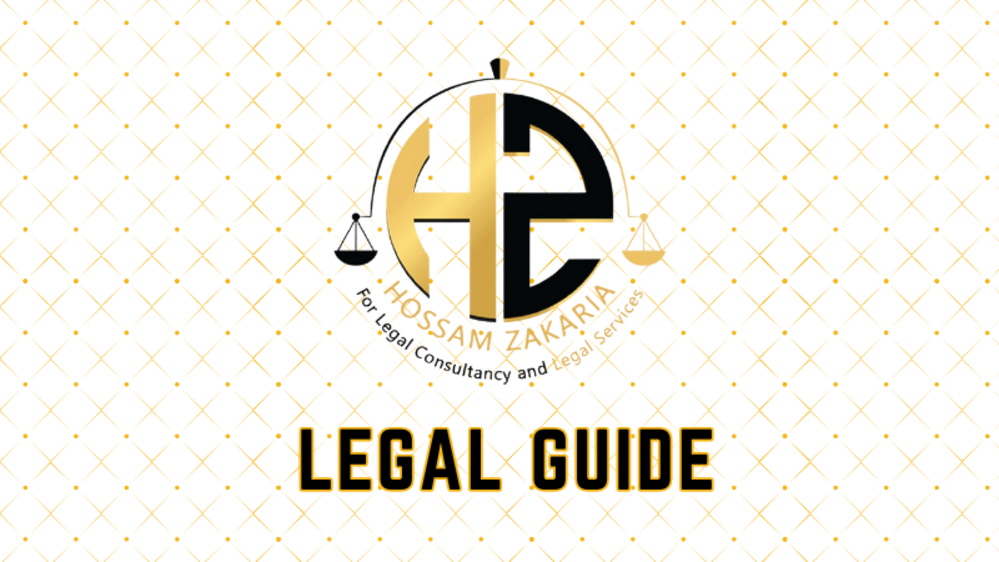Introduction: The Rising Role of Arbitration Law in Qatar
In an era of rapid economic growth and cross-border engagement across the GCC, Qatar’s legal environment has evolved significantly to provide secure, efficient, and internationally respected dispute resolution pathways. Arbitration law in Qatar, notably reshaped by Law No. 2 of 2017 on Promulgating the Civil and Commercial Arbitration Law, stands at the forefront of these reforms. Businesses, legal professionals, and executive teams operating regionally—especially those headquartered or investing in the UAE—must stay abreast of the legal landscape. This article delivers a comprehensive consultancy-grade analysis of Qatar’s arbitration framework, draws comparative lessons for the UAE and regional jurisdictional harmonization, and provides actionable strategies for legal compliance and risk minimization.
Given the GCC’s regional integration agenda, and in light of recent major legal updates in both the UAE and Qatar, understanding the nuances of Qatari arbitration law is not only a matter of compliance but of strategic business advantage. This detailed guide is tailored for C-suite leaders, HR directors, and GCC-focused legal practitioners seeking clarity, certainty, and forward-thinking advisory on Qatar’s arbitration regime and its practical implications for business in 2025 and beyond.
Table of Contents
- Understanding Qatari Arbitration Law in Context
- Key Provisions and Mechanisms of Qatar’s Arbitration Law
- Comparative Analysis: Qatar vs UAE Arbitration Frameworks
- Case Studies and Practical Compliance for Regional Businesses
- Risks of Non-Compliance and Strategic Compliance Pathways
- Conclusion and Forward-Looking Advisory
Understanding Qatari Arbitration Law in Context
Qatar modernized its arbitration landscape with Law No. 2 of 2017 (the “Arbitration Law”), bringing it broadly in line with the UNCITRAL Model Law, signaling commitment to international dispute resolution standards. The Qatari government’s goal is clear: to offer regional and international businesses both predictability and neutrality in resolving commercial conflicts. This law applies expressly to civil and commercial disputes—both domestic and, crucially, international—where parties have agreed to arbitration in writing.
Why Qatar’s Arbitration Law Matters for UAE Businesses
For UAE-based corporations, contractors, and investors, Qatar often represents a key business partner or project hub. Multinational supply chains, joint ventures, and construction projects frequently necessitate multi-jurisdictional contracts. Recent legal reforms, including the prominent UAE Federal Decree-Law No. 6 of 2018 on Arbitration, reflect a broader regional trend toward modernizing ADR (Alternative Dispute Resolution). Understanding the synergies and divergences in Qatar’s law enables UAE entities to draft more effective contracts, anticipate risk, and efficiently resolve disputes with Qatari counterparts.
Key Legislative Sources
- Law No. 2 of 2017 on Promulgating the Civil and Commercial Arbitration Law (Qatar Legal Portal)
- UNCITRAL Model Law (as an international framework)
- For comparison: UAE Federal Decree-Law No. 6 of 2018 on Arbitration and Dubai International Arbitration Centre (DIAC) rules
Scope and Structure of the Law
Qatar’s Arbitration Law applies to:
- Commercial and civil disputes, both domestic and cross-border, provided parties have a written arbitration agreement
- Arbitrations seated in Qatar, and foreign arbitral awards for recognition/enforcement (subject to public order and procedural safeguards)
- Excludes matters involving public order, criminal law, or family law
Key Provisions and Mechanisms of Qatar’s Arbitration Law
Arbitration Agreement Essentials
Article 7 of Law No. 2 of 2017 clarifies the requirements for a valid arbitration agreement:
- Must be in writing (in contract or in separate correspondence/exchange)
- Incorporation by reference is recognized, subject to clear intention
- Arbitration clauses are enforceable even if the underlying agreement is alleged void
Constitution of the Arbitral Tribunal
Parties are free to determine the number and appointment procedure for arbitrators. However, where parties disagree:
- The court may step in to appoint arbitrators to prevent deadlock (Article 11)
- Arbitrators must be impartial, independent, and not subject to conviction for any crime of moral turpitude
Conduct of Proceedings: Flexibility and Fairness
Qatar’s framework, borrowing from UNCITRAL’s ethos, emphasizes:
- Party autonomy in adopting procedural rules or institutional arbitration centers (e.g., QICCA, ICC)
- Equality of parties and fairness of process (Article 18)
- Language, venue, timeline, and evidential requirements can be customized
Interim Measures and Court Support
Courts can assist tribunals by enforcing interim protection orders (e.g., asset freezing), securing witness attendance, and producing documents (Articles 18–19). This hybrid support enhances arbitral effectiveness, notably in high-stakes or urgent regional disputes.
The Award: Validity and Corrections
- The arbitral award must be in writing, signed by the tribunal, and state reasons unless otherwise agreed (Article 31)
- Correction of awards for clerical errors is possible within 30 days of issuance
- Awards are binding and carry the force of res judicata between the parties
Challenging and Enforcing Arbitral Awards
- An application to set aside (vacate) an award must be lodged within one month of notification (Article 33)
- Qatar enforces foreign arbitral awards in line with the New York Convention (1958), to which it is a party
- Grounds for refusing enforcement are limited and include incapacity, lack of due process, excess of mandate, or conflict with public order
Visual Suggestion
Visual/Table: “Core Components of the Qatari Arbitration Process”—a process flow diagram showing (1) initiation, (2) tribunal selection, (3) proceedings, (4) award issuance, (5) challenge/enforcement.
Comparative Analysis: Qatar vs UAE Arbitration Frameworks
Why Comparative Understanding Matters
UAE-headquartered businesses often negotiate disputes across multiple jurisdictions. Harmonization and clear understanding of the nuanced differences between UAE Federal Decree-Law No. 6 of 2018 and Qatar’s Law No. 2 of 2017 empowers companies to avoid procedural pitfalls and maximize enforceability.
Key Differences and Similarities: Qatar and UAE Arbitration Laws
| Feature | Qatar (Law No. 2 of 2017) | UAE (Federal Decree-Law No. 6 of 2018) |
|---|---|---|
| Model Law Basis | Fully implements UNCITRAL Model Law | Substantial adoption of UNCITRAL Model Law, with UAE-specific modifications |
| Scope | Applies to civil, commercial, domestic, and international disputes | Broad, including onshore/offshore disputes and free zones (with certain exceptions) |
| Interim Relief | Court may grant/enforce interim measures | Court assistance available; recent updates enhance interim powers |
| Enforcement | New York Convention; streamlined enforcement with limited public order review | New York Convention; dedicated enforcement judge, expedited procedures |
| Challenge Timeframe | 1 month from notification | 30 days from date of notification of award |
| Institutional Options | QICCA, ICC, LCIA, ad hoc | DIAC, ADCCAC, DIFC-LCIA, ad hoc |
Practical Consultancy Insights
- Contract Drafting: Explicitly define seat, governing law, rules, language, and appointment process; anticipate multi-jurisdictional enforceability.
- Pre-dispute Planning: Consider crafting bespoke arbitration clauses referencing both Qatari and UAE institutional rules where partnerships cross borders.
- Enforcement: Ensure alignment of contractual and project documentation to facilitate recognition in both Qatar and UAE courts.
Case Studies and Practical Compliance for Regional Businesses
Case Study 1: Infrastructure Contractor JV
A UAE-headquartered contractor forms a joint venture with a Qatari company to deliver a major FIFA World Cup infrastructure project. The JV agreement stipulates QICCA arbitration in Doha.
- Practical Insight: The JV’s arbitration clause should delineate (1) the seat (Doha), (2) the language of proceedings, and (3) institution rules.
- Compliance: Both partners should maintain a repository of sealed, written agreements and correspondence to preemptively confirm the validity of the arbitration clause.
- Risk: Failure to specify key elements or procedural details risks delayed enforcement or nullification of the award in either jurisdiction.
Case Study 2: Commercial Distribution Dispute
An Abu Dhabi-based electronics distributor faces a contractual dispute with a Qatari retailer. The underlying distribution contract references “arbitration under Dubai rules.” When conflict arises, the Qatari party objects, claiming ambiguity regarding the procedural framework.
- Practical Insight: Ambiguously drafted arbitration clauses are a leading cause of delayed or denied arbitral enforcement in both jurisdictions.
- Solution: Future contracts should clearly name the chosen rules (e.g., DIAC, ICC) and governing law to remove interpretive uncertainty.
Visual/Table Suggestion:
Table 2. Compliance Checklist for Cross-Border Arbitration Clauses
| Checklist Item | Qatar Law Compliance | UAE Law Compliance |
|---|---|---|
| Arbitration Clause In Writing | Required | Required |
| Specification of Arbitration Seat | Recommended | Recommended |
| Clear Reference to Rules/Institution | Strongly Advised | Strongly Advised |
| Arabic/English Language Provision | Optional | Optional |
| Express Consent and Authority | Essential | Essential |
Risks of Non-Compliance and Strategic Compliance Pathways
Key Compliance Risks
- Enforceability Challenges: Invalid or poorly specified arbitration clauses can result in Qatar or UAE courts refusing to recognize or enforce awards.
- Procedural Delays: Ambiguities in appointment, language, seat, or applicable rules can cause costly preliminary disputes and months of delay.
- Loss of Confidentiality: Inadvertent reliance on public court channels for enforcement or interim relief can expose commercially sensitive information.
- Public Order Objections: Failure to align contract and process with mandatory law may trigger review/rejection on “public order” grounds (notably in sensitive sectors).
Compliance Strategies for UAE Businesses Engaging in Qatar
- Legal Audit and Contract Updating: Regularly review and update all cross-border contracts for compliance with current Qatari and Emirati arbitration law, taking account of the latest UAE Federal Decrees (see: UAE Federal Decree-Law No. 6 of 2018 updates).
- Partner with Specialized Legal Counsel: Engage law firms or consultants with concurrent Qatar and UAE arbitration experience to ensure seamless handling and minimize risk.
- Train Executive and Project Leaders: Develop internal protocols so senior management understand the procedural impact of arbitration law changes in both jurisdictions.
- Institutional Preference: Where possible, consider regional arbitration institutions with a proven track record for cross-border enforcement, such as QICCA, DIAC, or ICC with a clear seat stipulated.
- Document Management: Preserve all written evidence of contract and subsequent amendments, as well as procedural communications, to support enforceability.
Conclusion and Forward-Looking Advisory
Qatar’s arbitration regime, as codified in Law No. 2 of 2017, is a model of regional legal modernization, closely aligning with the standards found within the UAE and other GCC neighbors. For UAE-based or regional organizations, mastery of Qatari arbitration law is now a commercial imperative, not merely a legal technicality. In 2025 and beyond, as legislative reforms in the UAE and Qatar deepen the role of arbitration, organizations will benefit greatly from proactive adaptation: crafting clear, enforceable arbitration clauses, choosing reputable institutions, and staying current on procedural trends.
The competitive edge—commercial efficiency, confidentiality, and legal certainty—is reserved for those who make arbitration law navigation a boardroom priority. Consultation with specialist legal advisors, periodic legal compliance reviews, and tailored executive education are best practices to ensure disputes, when they arise, are resolved with minimal operational and reputational risk.
Call to Action: For tailored legal support on structuring or contesting arbitration agreements involving Qatar or the broader GCC, UAE businesses are encouraged to seek expert advisory from cross-jurisdictional legal specialists who understand both the letter and evolving practice of the law.



